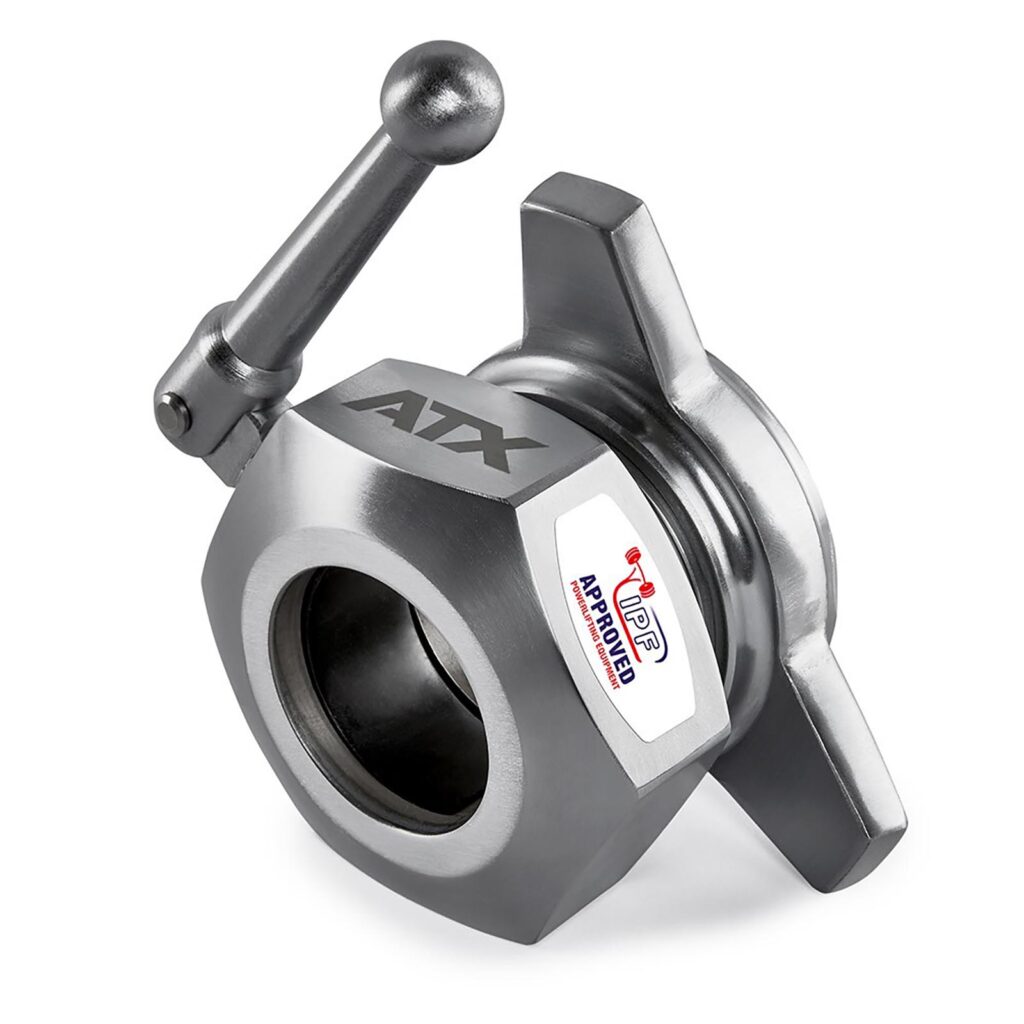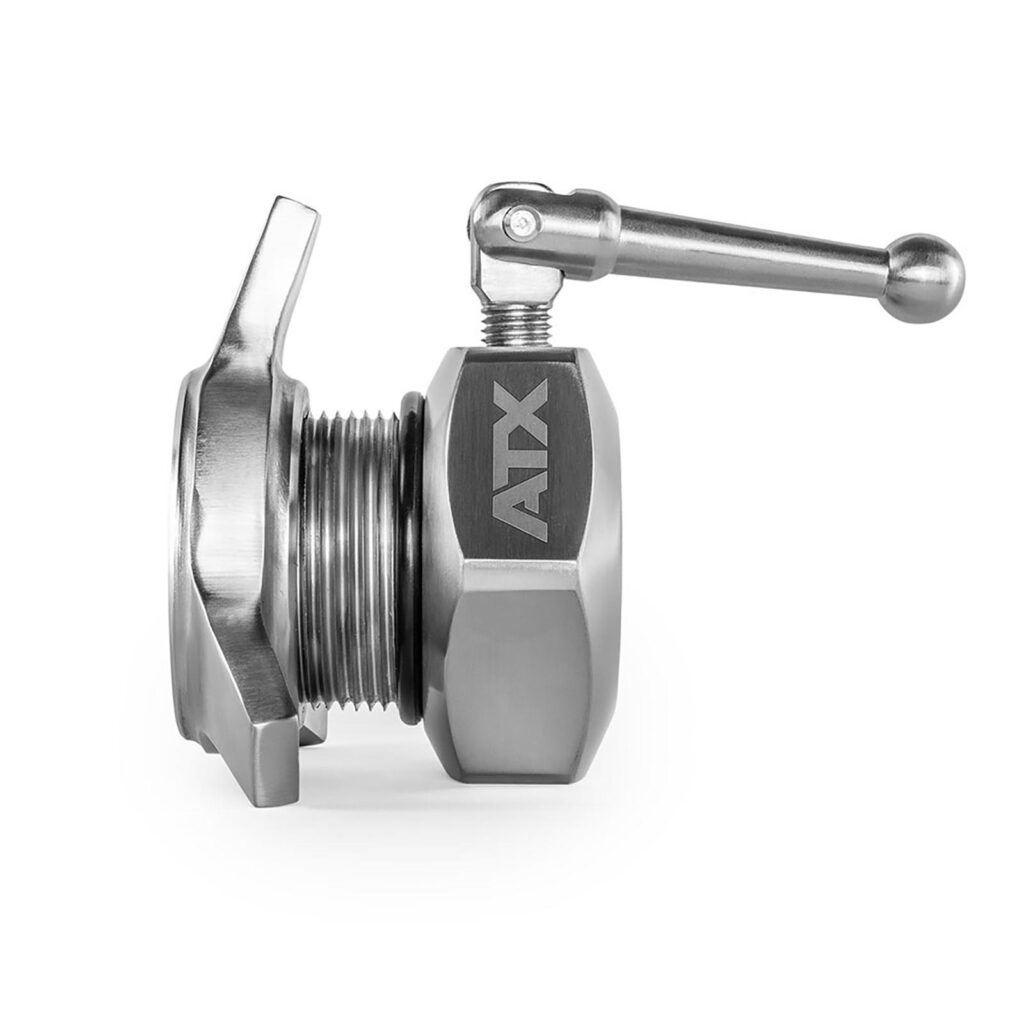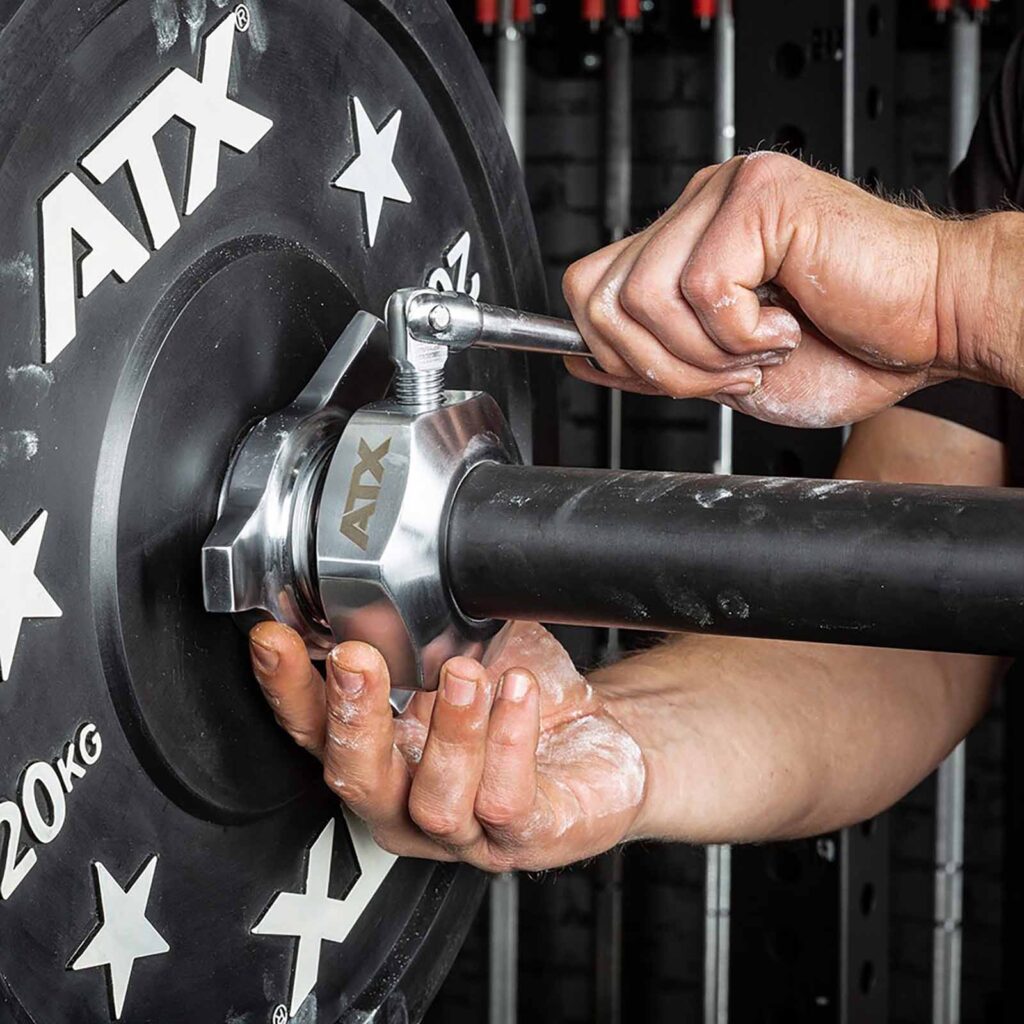The Best Barbell Collars
In a perfect world, when we’d all be moving the bar up and down in a straight line. But the world is far from perfect and so is your form! That’s why bar collars are so useful: they stop the plates from moving side so side when you’re lifting. There are many types, so which are the best barbell collars for your gym?
Training without collars is a recipe for disaster. No matter how good you are there’s bound to be some lateral movement. And the more weight on the bar and more reps you do, the more the plates will shift. So don’t be silly and get yourself a pair of barbell collars – if you’re on a budget I can guarantee our spring collars will still be cheaper than spinal surgery.
The first thing you need to check is which type of bar you have – the vast majority of barbells are Olympic barbells which have 50mm sleeves. Standard bars are pretty oldschool but there’s still plenty of them around. Unfortunately though there’s no standard governing standard barbells, and the sleeve diameter is anywhere between 25 and 30mm. So if you do have a standard bar then please measure it before buying any collars.
Collars for Standard Barbells
CGSTDCOLL – standard 27mm spring collars. These are your bog standard spring collars designed for barbells with a 27mm sleeve diameter. Spring collars have been a favourite for years due to their simplicity and long lifespan. For 2 bucks they’re a steal.
Z-COL-STD25MM – 25mm clamp collars. These collars are designed for barbells with a 25mm sleeve diameter. Lock jaw collars are seeing an increase in popularity, they’re super easy to use and lightweight. The lock jaw mechanism is stronger than spring collars and it comes with a rubber lining. The rubber lining is there to protect your barbell from any scrapes.
For Olympic Barbells
Spring collars are the most popular type of barbell collars, we stock spring collars with handles and basic spring collars without a handle. They’re both of very similar quality, so it’s a matter of preference whether you want a handle or not. The benefit of spring collars is that they’re cheap and durable, so if you own a gym where people often disrespect your equipment then these would be a go to.
Lock Jaw Collars
MG LOCKCOLLARS – These are plastic lock jaw collars for Olympic bars. Lock jaw collars are more secure than spring collars. The elastomer coating molds to the barbell for a tighter fit and also protects the sleeves. For the price these are unbeatable value.
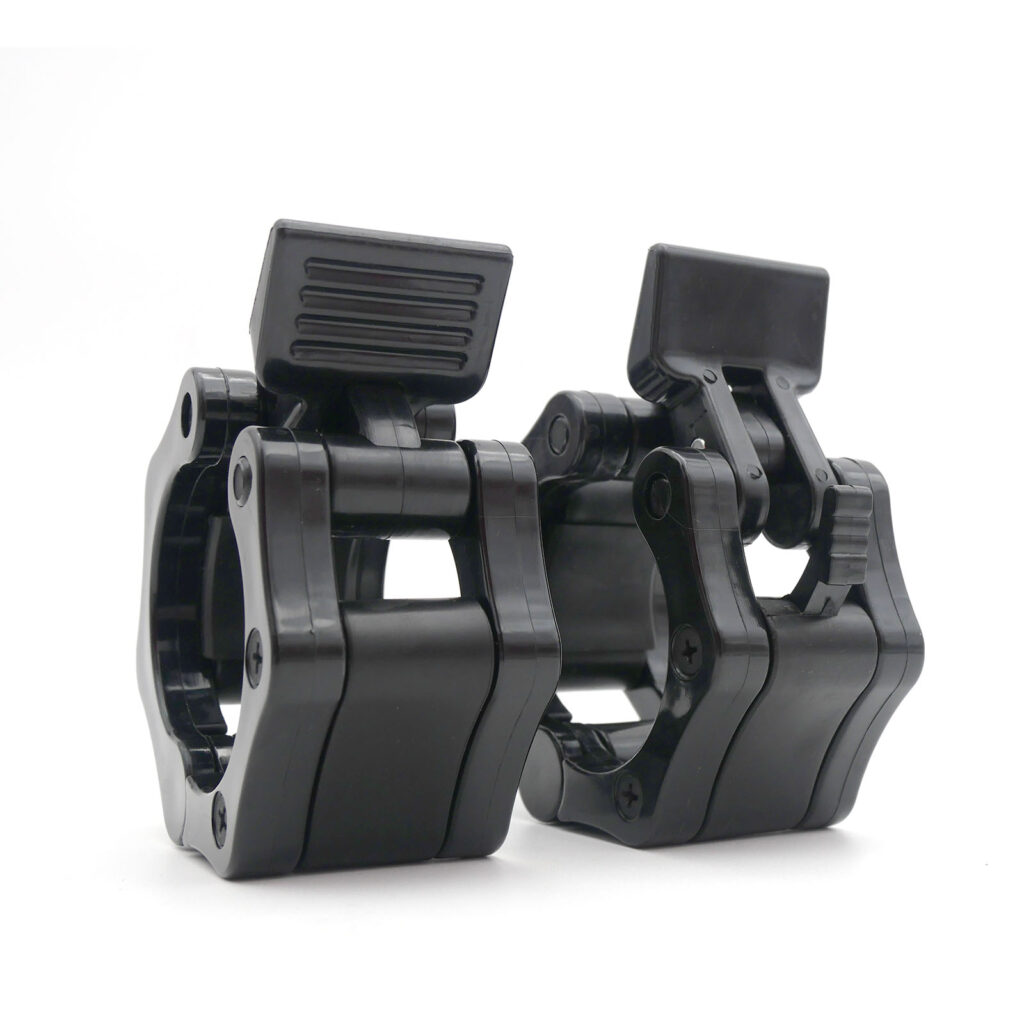
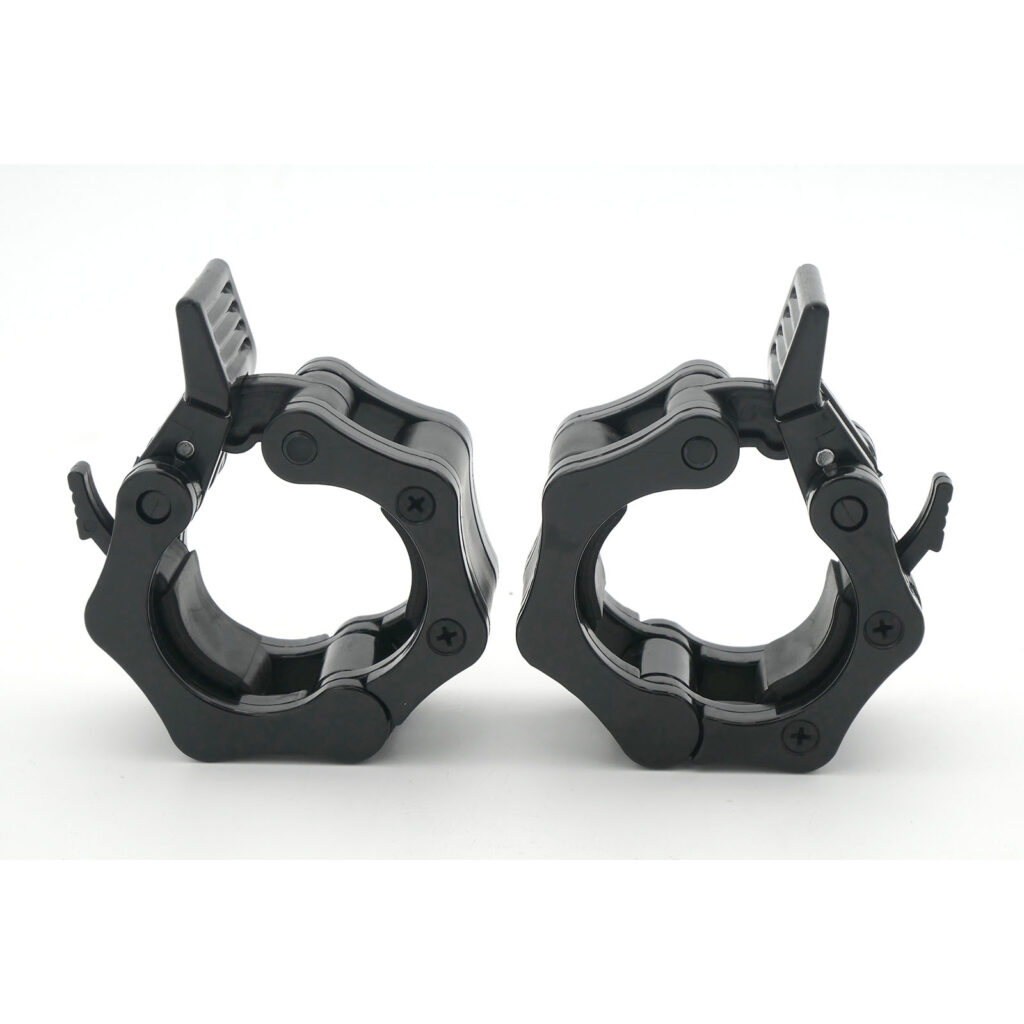
ATX-V-50-RSHQ-R – The Rocket series collars are a lock jaw type collar. They are a revised design from the traditional lock jaws above. They have slightly larger gripping area. Plus the striking red collar might them the best barbell collar choice for your gym.
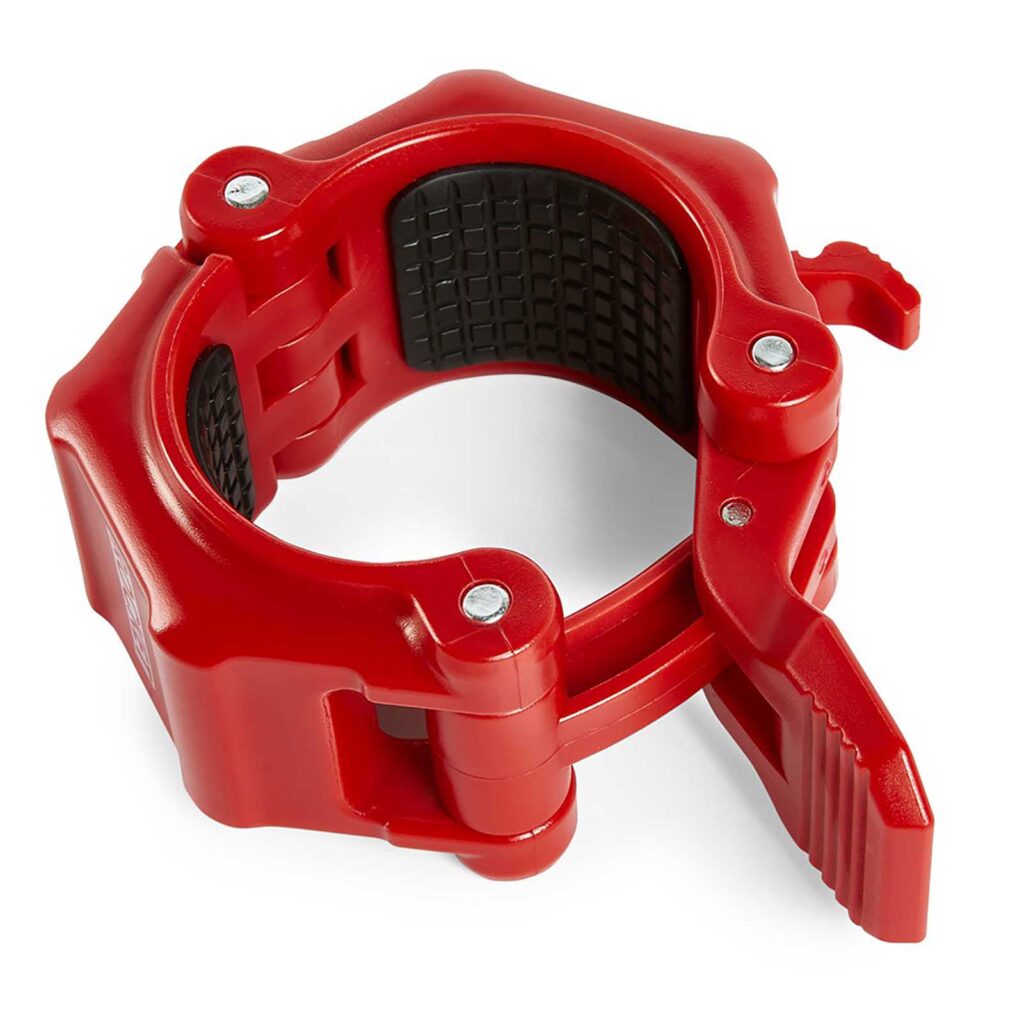
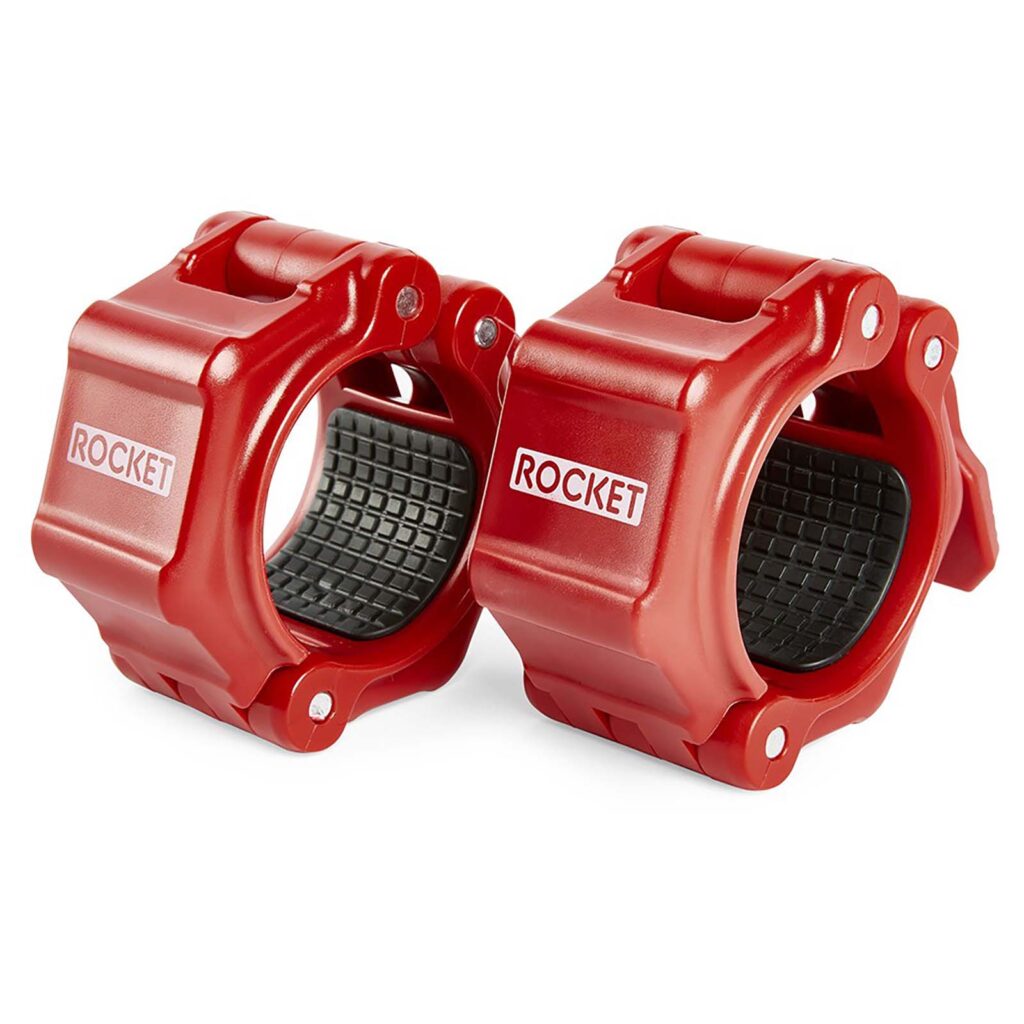
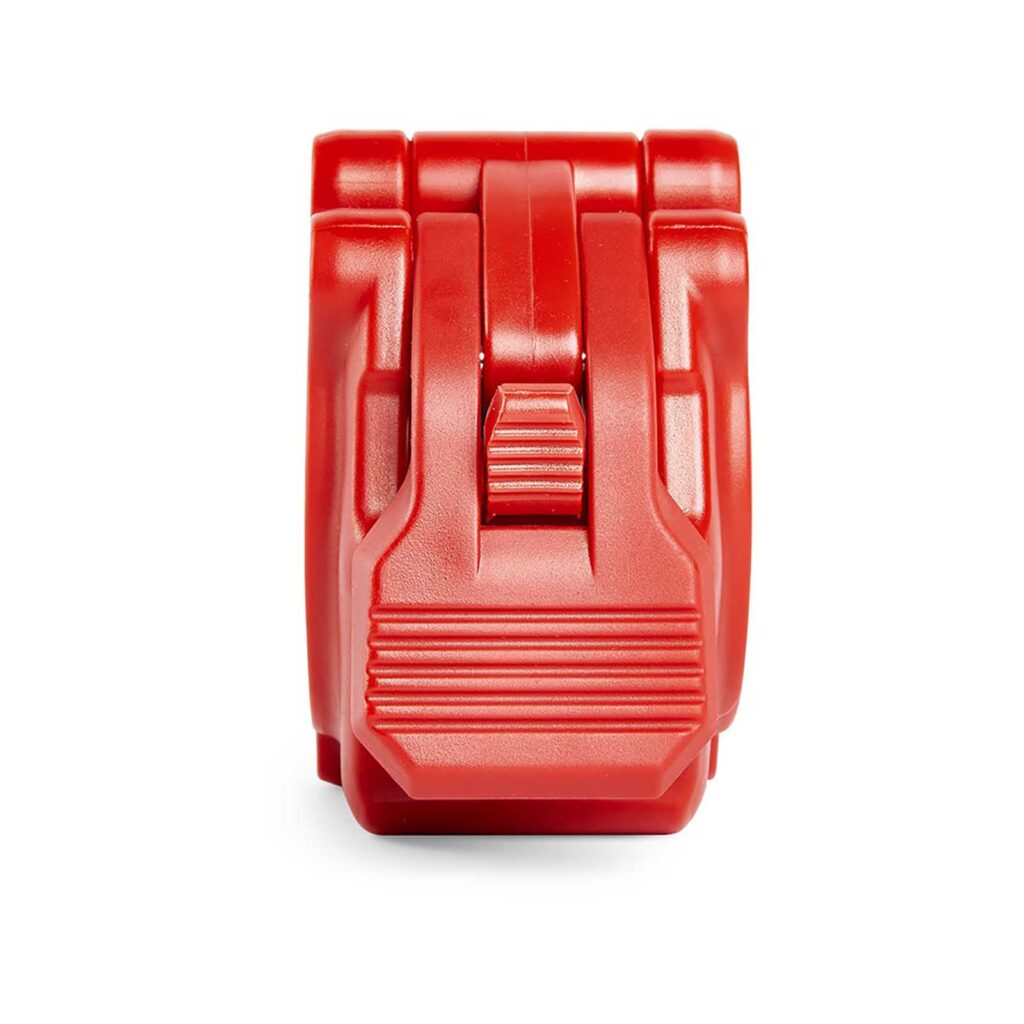
ATX-V-50-ALU-BLACK – These aluminum locking collars have been a hit in Australia. They have a very similar design to the plastic lock jaw collars, but being manufactured from aluminum they’re a bit stronger. They also feature a double locking mechanism so they fit tighter to your barbell. They’re available in Silver, Black and Red so you’re guaranteed to find a colour that matches your gym.
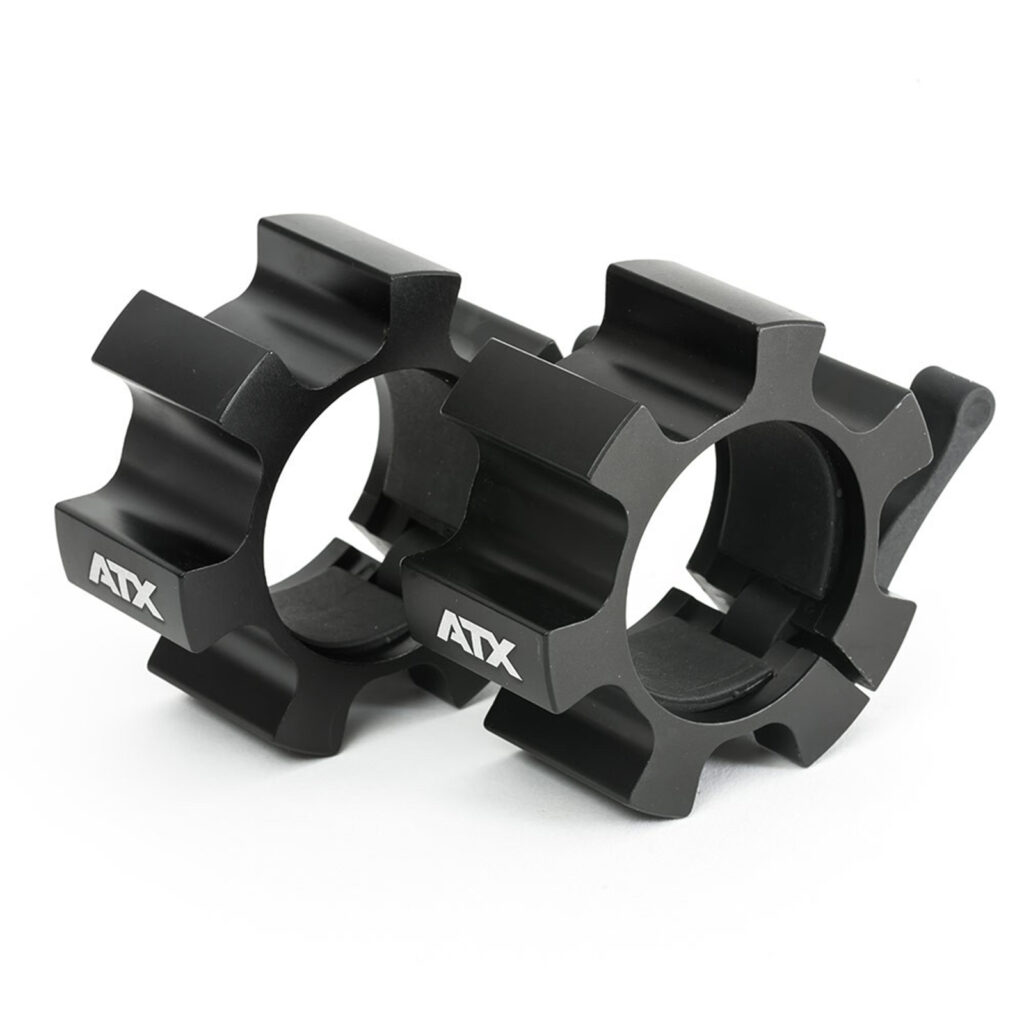
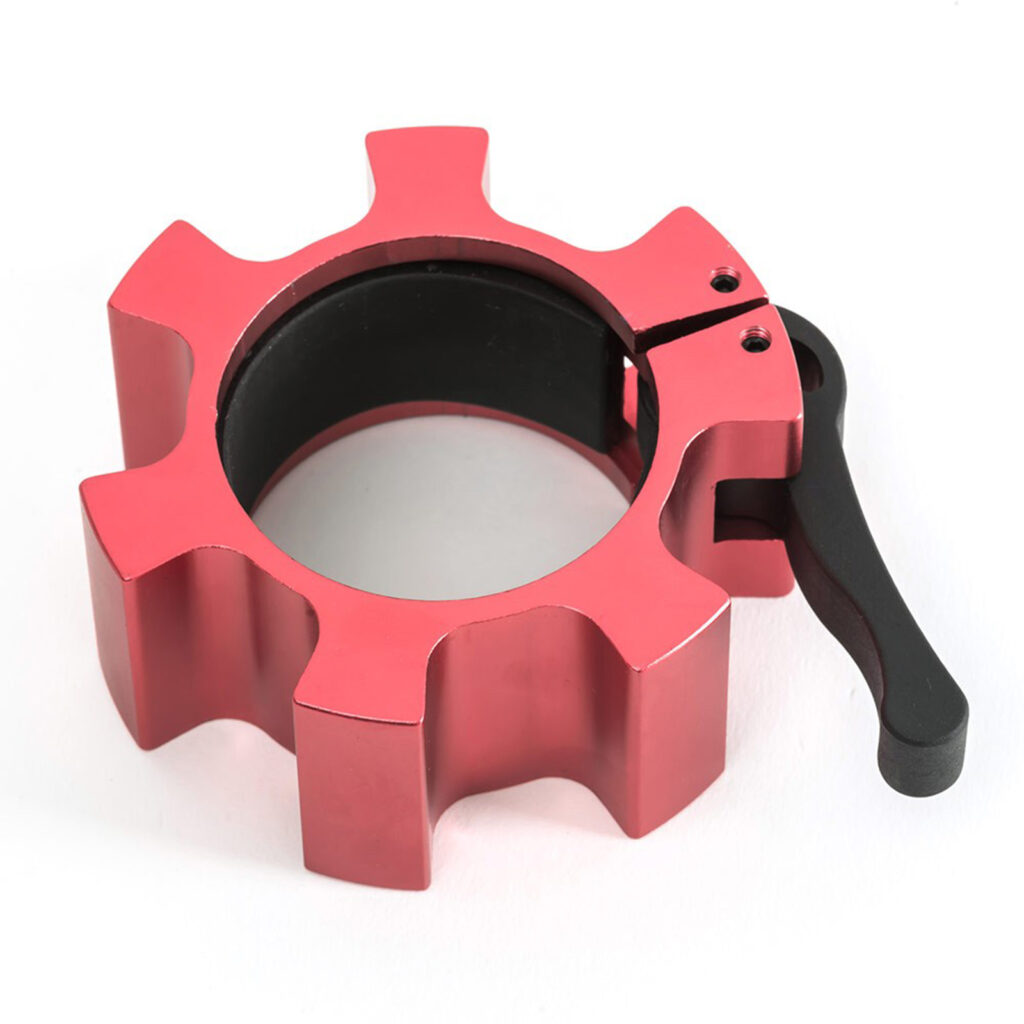
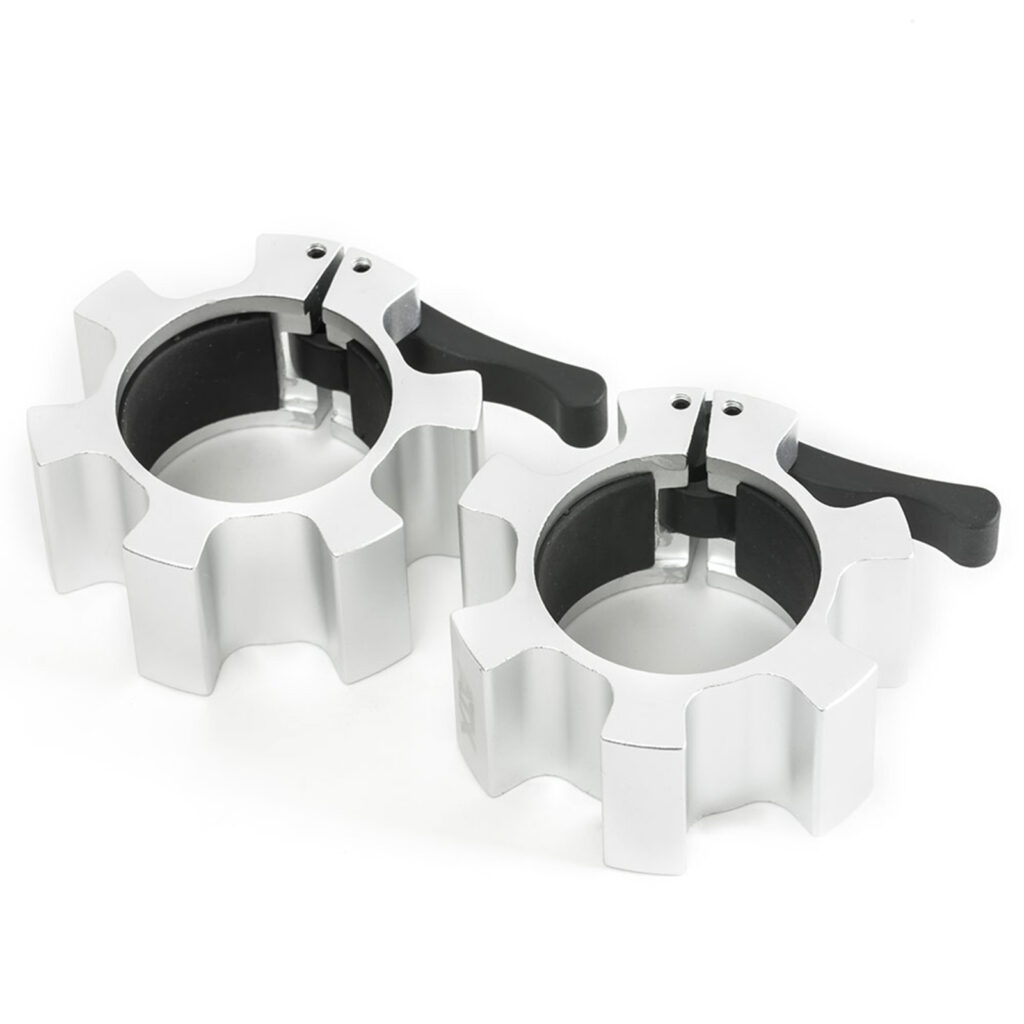
ATX-V-50-200 – The ATX Magnetic Collars are another spin on the easy locking collars. They are easy to operate just like the others. But have the added advantage of being able to be stored on any steel areas of your gym.
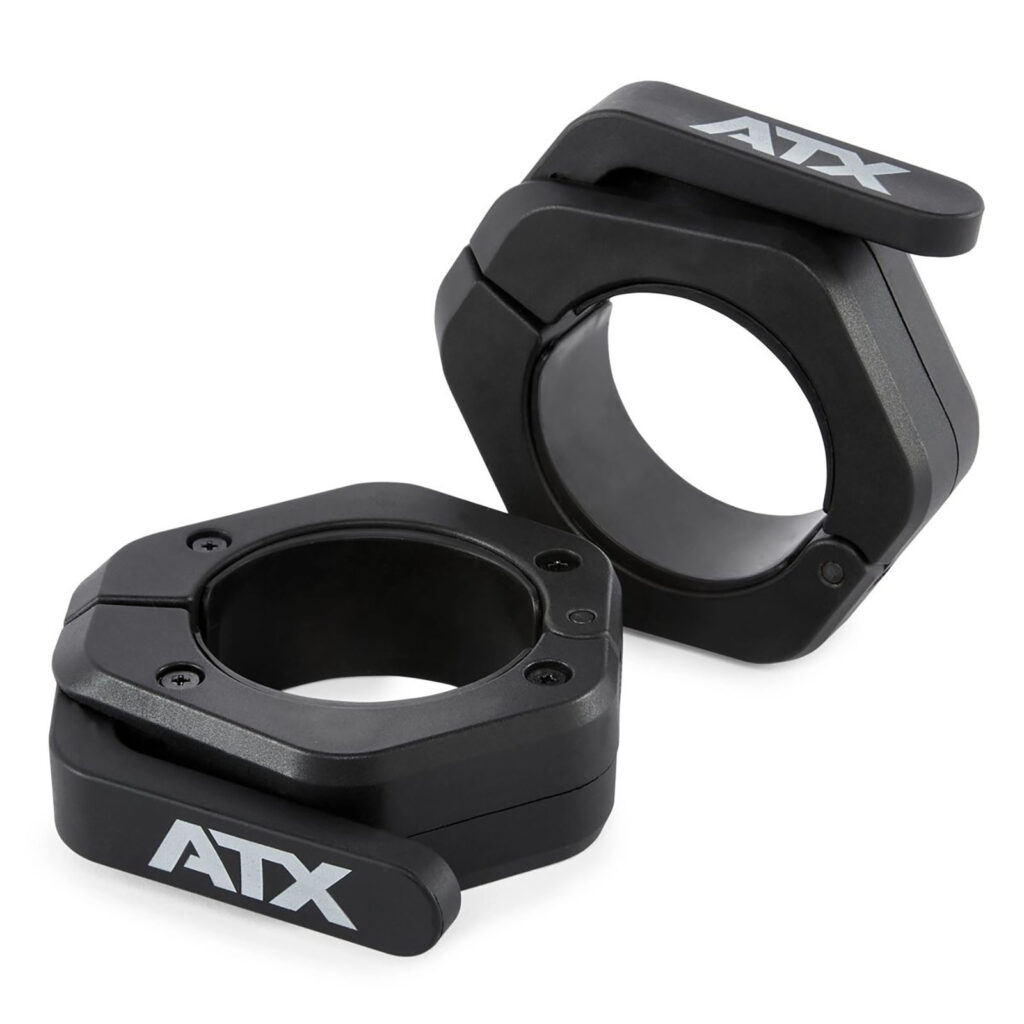
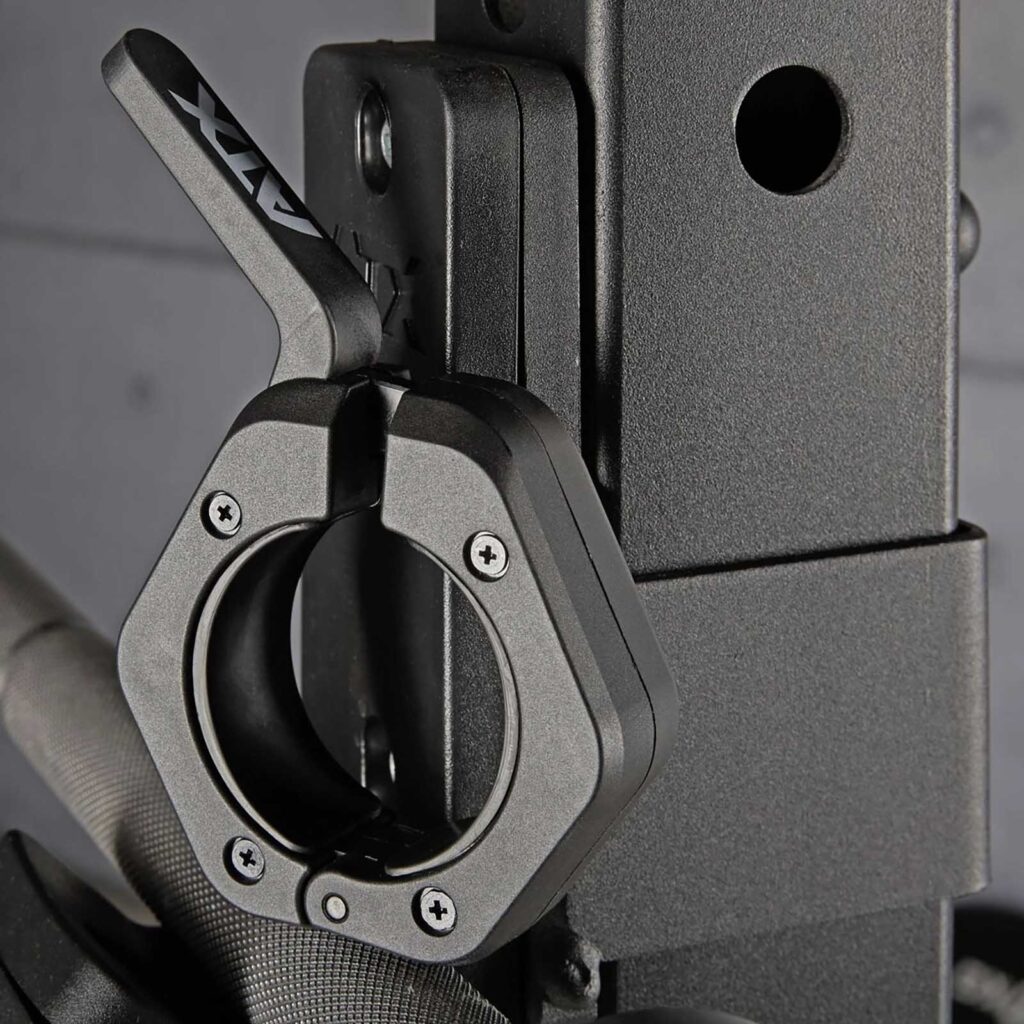
SPDCROC – The spud croc lock collars are another unique design from Spud Inc. They’ll come in really handy if your barbell is a tiny bit over, or under 50mm. It features a thermoplastic rubber core with a Velcro strap to tighten it, which makes it incredibly flexible. Due to the design it will fit snugly on your barbell, meaning your plates stay secure and your barbell doesn’t get scratched.
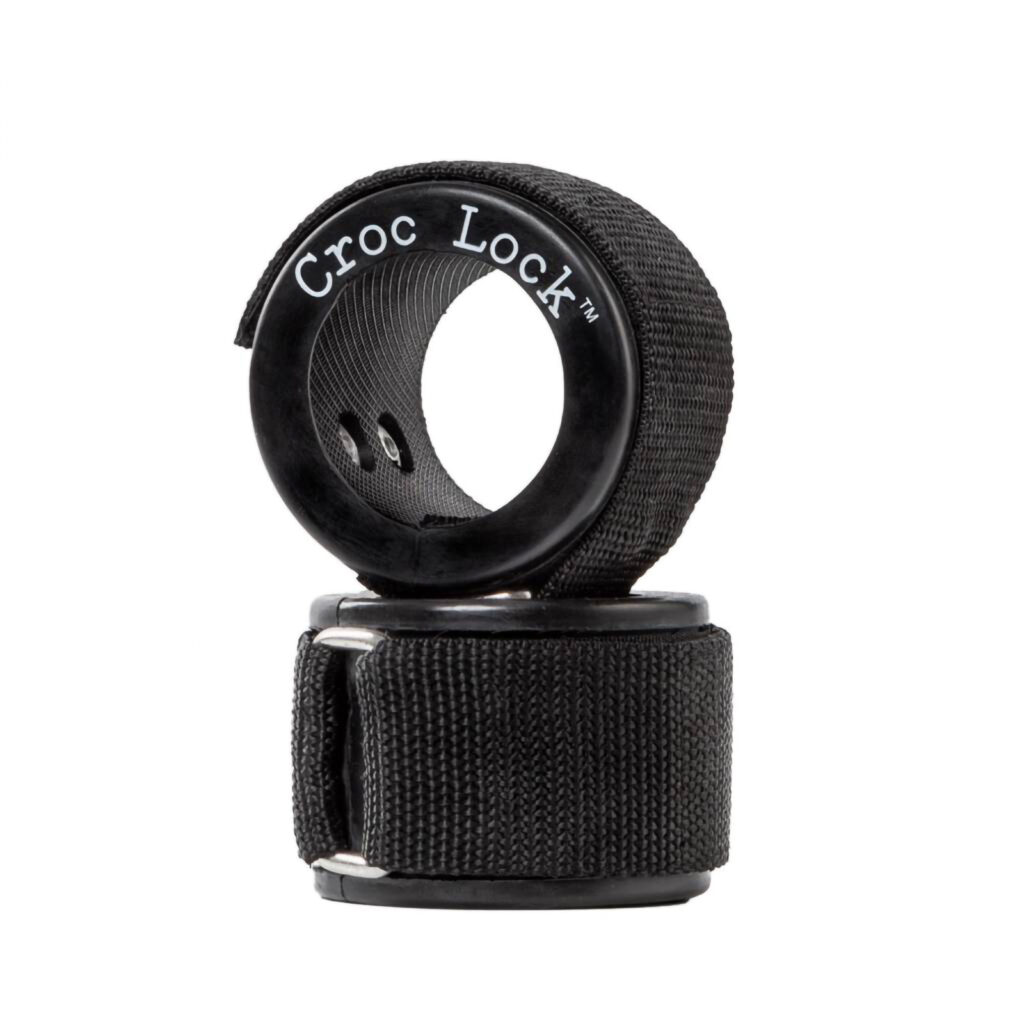
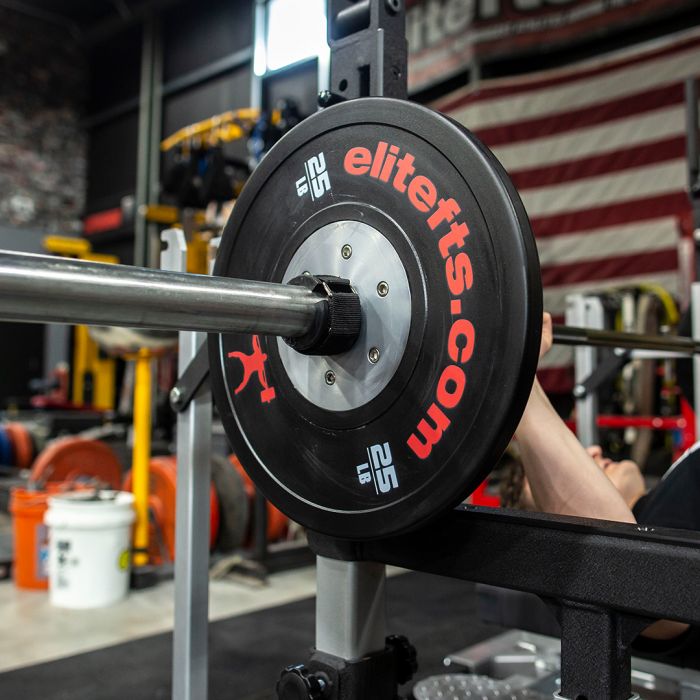
ATX-V-50-600 – These competition powerlifting collars are beasts. They’ve been designed with competitions in mind, meaning they’re calibrated to 2.5kg a piece and have a super tight locking system. You’ll benefit from these if you’re training for a Powerlifting competition – it’s always best to train with the equipment you’ll be competing with, so there’s no surprises when you step on the platform. Just note that to get the most out of these you’re going to want some calibrated powerlifting plates, it’s pointless having your collars calibrated if your 25kg plate weighs 24kg.
